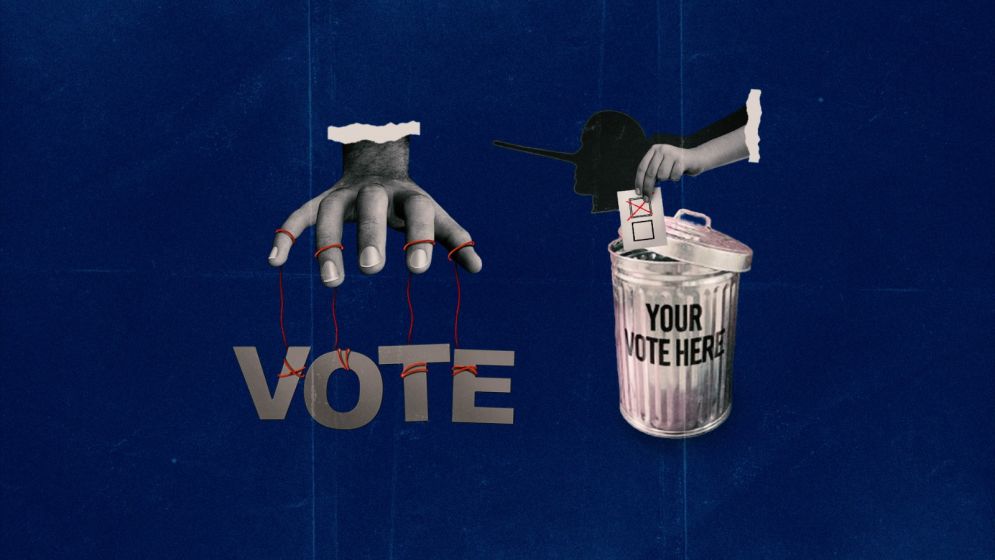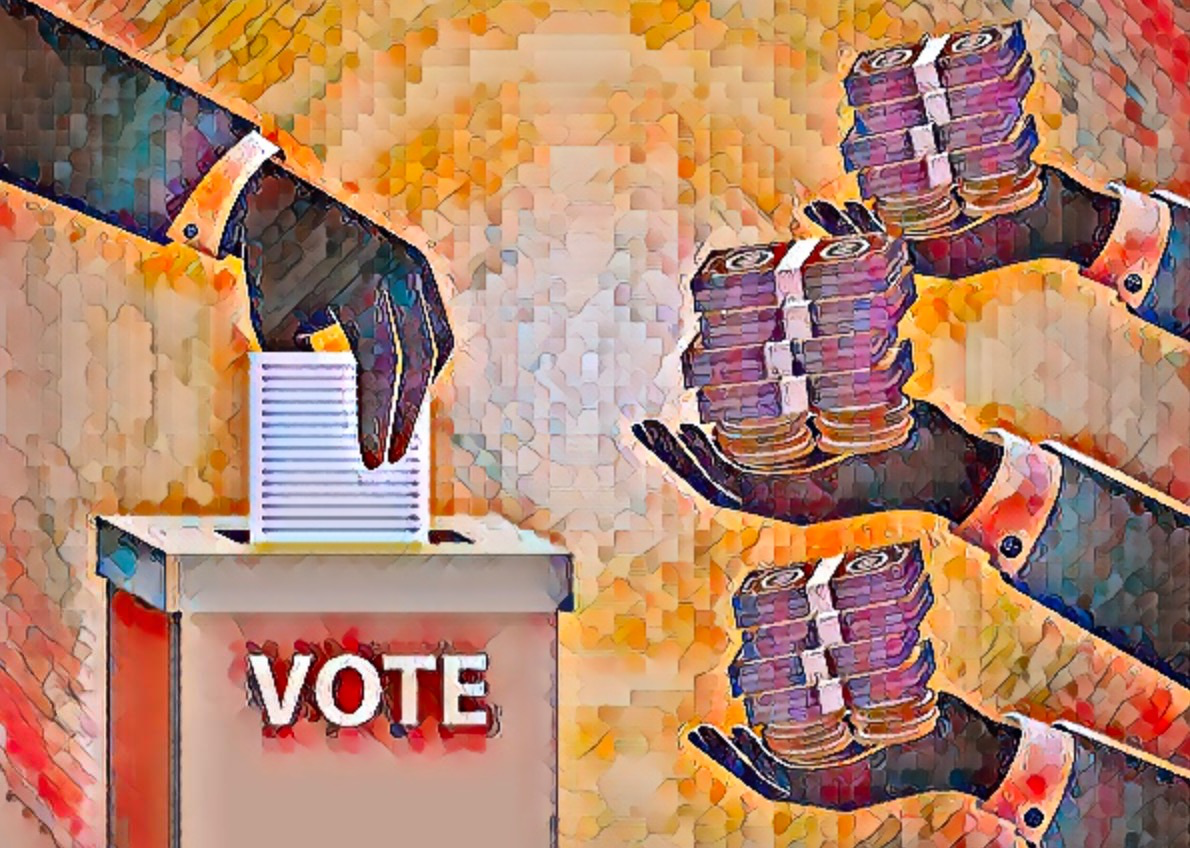Why I’ve come to realize that the ballot box doesn’t scare the powerful….it protects them

You’ve probably never heard of Povalikhino—a remote speck of a village 300 miles east of Moscow. I hadn’t either, until two years ago, when it unexpectedly grabbed international headlines.
Why? Because something utterly absurd—and revealing—happened there: a 35-year-old woman who once mopped floors at the local municipal hall was elected mayor, defeating her own boss, the sitting mayor.
Her unlikely victory wasn’t just a local oddity; it exposed the hollow theater of elections—not just in tightly controlled regimes like Russia or Belarus, but in so-called liberal democracies across the West.
It laid bare the growing public disillusionment with electoral systems that are increasingly seen as tools for preserving power, not distributing it.
But before unpacking what this says about global democracy, let’s rewind to what unfolded in Povalikhino in 2020.
Nikolai Loktev, the incumbent mayor, was gearing up for reelection when he realized a problem: he had no opponent. That wouldn’t do—autocracies need at least the illusion of competition.
As panic set in and even his assistant declined to run, Loktev settled on a last-resort candidate: Marina Udgodskaya, the municipal cleaner. She agreed—not to win, but to play her part in the charade.
Loktev relaxed, assuming the mere presence of a cleaner on the ballot made his victory a foregone conclusion. Why rig an election no one could possibly lose?
Then came the twist: Udgodskaya won.
No one was more stunned than she was. She hadn’t campaigned, hadn’t given a speech, and hadn’t expected a single vote. “He just needed someone—anyone—so the election could happen,” she later said.
The absurdity of it all triggered a media frenzy, and rightly so. But beyond the satire was something far more serious: a mirror held up to systems everywhere, showing how elections, designed to legitimize power through choice, have in many cases become cynical rituals—empty exercises that serve the ruling class while leaving ordinary citizens disillusioned and voiceless.

Why elections are failing
Flawed or not, elections serve one essential function: legitimacy.
Whether in an autocracy or a democracy, the goal is the same—to cloak power in the mantle of public consent. For rulers from Dhaka to Washington, the ballot box is less about accountability and more about validation.
Don’t flinch at the comparison between Bangladesh—my birthplace—and America, the country I long called home because of my work. The parallels may be uncomfortable, but they are real. Bear with me—I’ll come to that.
I know this from experience. I grew up in a remote village in Khulna during the 1960s, under the authoritarian rule of Pakistan’s General Ayub Khan. I was swept into the anti-Ayub movement, mostly because my older brothers, then in high school and college, convinced us that he was a tyrant who had to go.
“Once the dictator is gone,” they told us, “democracy will come—and with it, justice, peace, and prosperity.”
We believed them. We had to.
But within just two years of Ayub’s fall, after the birth of Bangladesh and the election of Sheikh Mujibur Rahman—our revered Father of the Nation—those lofty hopes began to crumble.
Instead of the promised peace and progress, we saw corruption, authoritarianism, and political chaos. The dream of democracy quickly curdled into disillusionment.
Then came August 1975 and the assassination of Mujib, plunging the country into a cycle of military and quasi-military rulers. Each of them, in turn, held elections—not to empower citizens, but to rubber-stamp their grip on power.
Over time, the public caught on. People realized these elections were never about them. They were about preserving the privileges of those at the top.
The result? Mass apathy. Voters disengaged—not out of laziness, but because they understood the game was rigged.
And this creeping disillusionment isn’t unique to Bangladesh.
Even in self-proclaimed “free” democracies—India, Western Europe, America—the story feels eerily familiar. Yes, people still go out and vote, but it’s mostly out of habit or lack of alternatives.
And what do those votes change? Often, little more than the face behind the podium. The system, the structures, the entrenched interests—they remain untouched.

A managed consent
Elections, once symbols of hope and change, have become rituals of managed consent. And that should worry all of us.
And let’s not pretend this rising disgust with the political class hasn’t had real, dangerous consequences. The widespread alienation of voters—tired of being ignored, manipulated, and lied to—has opened the door for a new breed of strongmen: xenophobic, ultranationalist demagogues who promise to burn the system down.
Narendra Modi in India, Viktor Orbán in Hungary, Donald Trump in the United States—these are not outliers. They are the logical byproducts of a system that has long stopped serving its people.
Even Sweden, once a beacon of liberal values and tolerance, had elected a right-wing coalition. Think about that: if it can happen in Sweden, it can happen anywhere.
History tells us this is nothing new. Democracies have always flirted with demagogues when the public’s anger boils over. Why? Because most democratic systems are rigged from the start.
Power swings back and forth between two establishment parties—liberal or conservative, left or right—who differ in rhetoric but not in their allegiance to the status quo.
For the average citizen, it’s a fixed game: pick the lesser evil, every few years, and pretend that's the real choice.
This ritualized betrayal, this manufactured consent, is exactly why I no longer vote—neither in Bangladesh nor in America. What’s the point of casting a ballot when the outcome is always the same: elites in charge, ordinary people discarded?
Let’s call democracy what it has become in most places: a plutocracy wrapped in a ballot paper, a thugocracy hiding behind a constitution.
That’s why I now believe in something else: a system that prioritizes the well-being of its people, that puts collective progress over political theater.
Call it what you will—benevolent autocracy, technocratic rule—but I see more promise in models like China and Singapore, where strong, competent, and incorruptible leadership has delivered real results.
Give me an honest, capable leader like Xi Jinping or the late Lee Kuan Yew over any smooth-talking, vote-chasing career politician.
Because I’m convinced of one simple truth: if a country’s leadership is honest, half its problems solve themselves.
—
Arshad Mahmud is a senior journalist. He covered Bangladesh for the New
York Times for a long time

